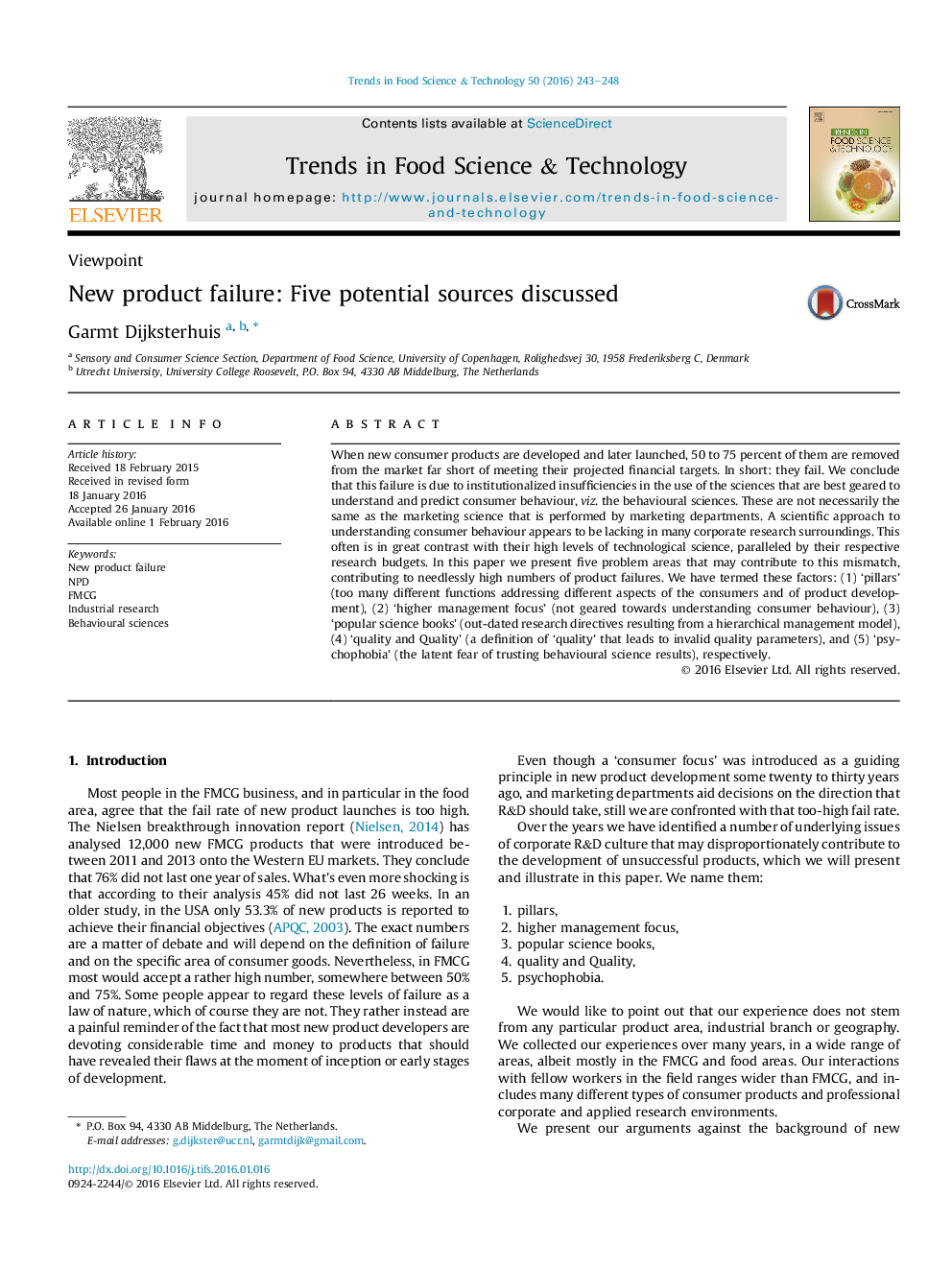| Article ID | Journal | Published Year | Pages | File Type |
|---|---|---|---|---|
| 2098464 | Trends in Food Science & Technology | 2016 | 6 Pages |
•In FMCG research there are too many functions addressing different aspects of the consumers and of product development.•The focus of many higher management in the FMCG industry is not geared towards understanding consumer behaviour.•Out-dated directives resulting from a hierarchical management model in FMCG research result in products likely to fail.•In the FMCG industry a definition of ‘quality’ is often used that can lead to invalid quality parameters.•A latent fear of trusting behavioural scientific research results in new products that are prone to fail on the market.
When new consumer products are developed and later launched, 50 to 75 percent of them are removed from the market far short of meeting their projected financial targets. In short: they fail. We conclude that this failure is due to institutionalized insufficiencies in the use of the sciences that are best geared to understand and predict consumer behaviour, viz. the behavioural sciences. These are not necessarily the same as the marketing science that is performed by marketing departments. A scientific approach to understanding consumer behaviour appears to be lacking in many corporate research surroundings. This often is in great contrast with their high levels of technological science, paralleled by their respective research budgets. In this paper we present five problem areas that may contribute to this mismatch, contributing to needlessly high numbers of product failures. We have termed these factors: (1) ‘pillars’ (too many different functions addressing different aspects of the consumers and of product development), (2) ‘higher management focus’ (not geared towards understanding consumer behaviour), (3) ‘popular science books’ (out-dated research directives resulting from a hierarchical management model), (4) ‘quality and Quality’ (a definition of ‘quality’ that leads to invalid quality parameters), and (5) ‘psychophobia’ (the latent fear of trusting behavioural science results), respectively.
